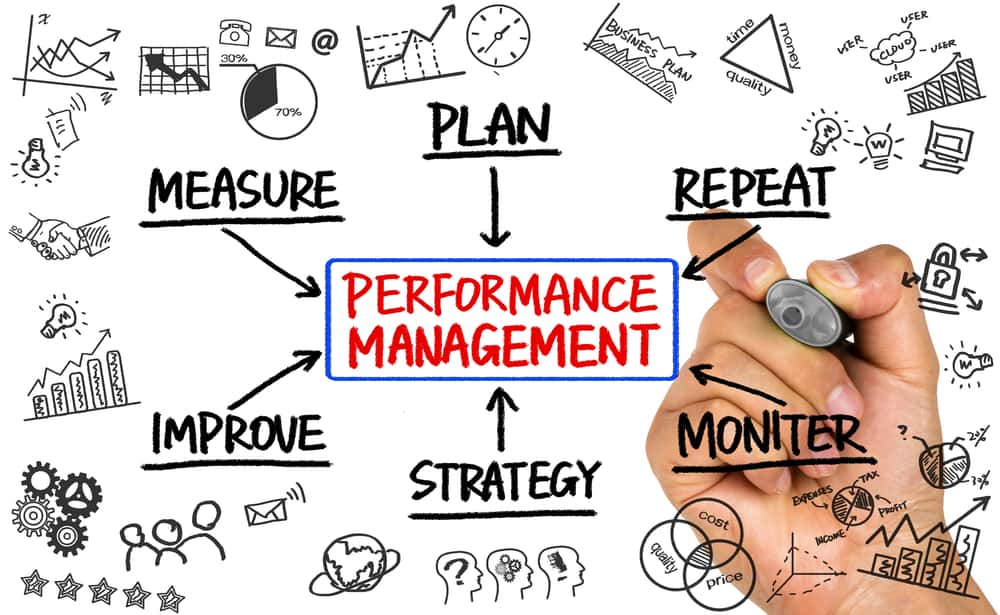Fostering Excellence Through Performance Management and Feedback Culture
Performance Management and feedback culture
 |
| Figure 01 - https://www.linkedin.com/pulse/from-performance-management-feedback-culture-patrick-willer/ |
introduction
In the fast-paced, cutthroat corporate world of today, companies aim to not just survive but to thrive. The pursuit of performance excellence, both at the individual and organizational levels, is at the heart of this endeavor. Setting high standards alone won't be enough to achieve and maintain high performance; a comprehensive strategy with strong performance management procedures and a supportive feedback culture is also needed.
Performance management, which is frequently praised as the cornerstone of organizational success, consists of a variety of procedures and actions intended to match team and individual performance with strategic goals. Effective performance management strategies serve as a guiding framework for promoting continuous improvement, increasing productivity, and boosting employee engagement. These methods include creating clear goals and expectations, giving regular feedback, and analyzing performance results (Denison, 2020).
This blog post delves into the complex interactions between feedback culture and performance management, examining their mutually beneficial relationship and the revolutionary potential they possess for achieving organizational success. With the use of research, industry knowledge, and practical examples, we'll look at the main ideas, advantages, difficulties, and best practices related to performance management and feedback culture.
Key concepts of performance management
 |
| Figure 01 |
- Goal Setting and Alignment
Setting goals that are in line with the organization's strategic objectives and that are precise, attainable, and unambiguous is the first step toward effective performance management. Establishing goals gives workers a path to success and forms the foundation for assessing their work (Locke & Latham, 2019).
- Ongoing Feedback and Coaching
Coaching and frequent feedback are crucial elements of performance management. Employees can identify their areas of strength and growth through ongoing feedback, and they can also receive coaching to help them realize their full potential (London & Smither, 2019).
- Performance Evaluation and Measurement
Employees' goals are evaluated as part of their performance review process, and they also receive helpful criticism on how they perform. The assessment process is facilitated by measurement methods like 360-degree feedback, performance appraisals, and key performance indicators (KPIs) (Bernardin & Beatty, 2020).
- Employee Development and Learning
Performance management promotes employee growth and lifelong learning in addition to assessing past performance. Employee growth and skill development are supported by developmental opportunities such as training courses, career counseling, and mentorship (Goldstein & Ford, 2020).
- Feedback Culture and Psychological Safety
Open communication, psychological safety, and trust are characteristics of a culture rich in feedback, where employees feel free to share their thoughts, worries, and feedback without worrying about criticism or reprisal. A culture of learning and creativity is fostered by psychological safety (Edmondson, 2019).
- Performance Recognition and Rewards
Performance management includes recognizing and rewarding people for their accomplishments and contributions. Incentives can come in many different ways, such as cash payouts, job advancements, public recognition, and intangibles like appreciation and recognition (Kerr, 2019).
- Performance Improvement and Corrective Action
Addressing performance-related concerns and, when required, offering assistance for improvement are further components of performance management. Employees can overcome obstacles and accomplish their goals with the aid of coaching, performance development plans, and constructive criticism (Pulakos & O'Leary, 2019).
Benefits of feedback culture
 |
| Figure 02 |
- Enhanced Employee Engagement
A culture that promotes feedback greatly encourages higher levels of employee engagement by giving staff members frequent chances to be acknowledged for their accomplishments and given performance evaluations. According to Gallup (2021), individuals who are engaged exhibit more dedication to their work, exhibit elevated levels of discretionary effort and have a greater probability of favorably impacting organizational objectives.
- Improved Performance and Productivity
Employees who have a feedback culture are better able to identify areas for improvement and receive prompt instruction and support from peers and management. This leads to continual performance improvement. Frequent feedback encourages workers to match their efforts with company objectives, which improves output and performance (Fisher & Boyce, 2013).
- Enhanced Communication and Collaboration
Leaders, teams, and employees all benefit from an environment that values and encourages open communication and teamwork. Organizations can dismantle silos, promote cross-functional collaboration, and stimulate innovation and creativity by promoting communication, exchanging ideas, and offering constructive criticism (Edmondson, 2012).
- Increased Employee Satisfaction and Well-being
Higher levels of job satisfaction and well-being are more likely to be experienced by workers who feel appreciated, respected, and supported in their roles. According to (Grawitch et al., 2017), a feedback culture that prioritizes acknowledgment, gratitude, and constructive criticism fosters a healthy work atmosphere and lowers stress and burnout.
I appreciate how you emphasize the importance of cultivating a culture that prioritizes feedback and continuous improvement. It's evident that creating an environment where employees feel valued and supported in their growth is key to achieving excellence.
ReplyDeleteWell described the key cincepts of performance management
ReplyDeleteForming a strong feedback culture and building a strong performance management system are essential for organizational development. Frequent feedback loops encourage productivity and creativity by enabling staff members to achieve excellence and match their work with organizational goals. Open communication promotes cooperation, trust, and ongoing development.
ReplyDeleteReally helpful topic and well described post, i'd really like the way you justify important facts align to the main topic.
ReplyDelete👍
DeletePerformance recognition captured nicely
ReplyDeleteBy implementing a feedback culture, organizations can benefit from a number of factors that enhance employee engagement, productivity, and overall performance.
ReplyDeleteThis article offers a fascinating examination of the critical roles that feedback cultures and performance management play in promoting excellence in businesses.
ReplyDeleteA commendable exploration of the importance of a strong performance management strategy and nurturing a feedback-rich culture in an organization. The use of multiple references adds credibility to the information shared.
ReplyDeleteIts a very neatly organized article.. Impressive..
ReplyDeleteWell organized article .also well described about the importance of feedback culture.thanks for sharing
ReplyDeleteThis insightful exploration of performance management and feedback culture highlights their pivotal roles in fostering organizational excellence and employee growth. A must-read for companies seeking to cultivate a supportive environment that drives performance, innovation, and success.
ReplyDelete